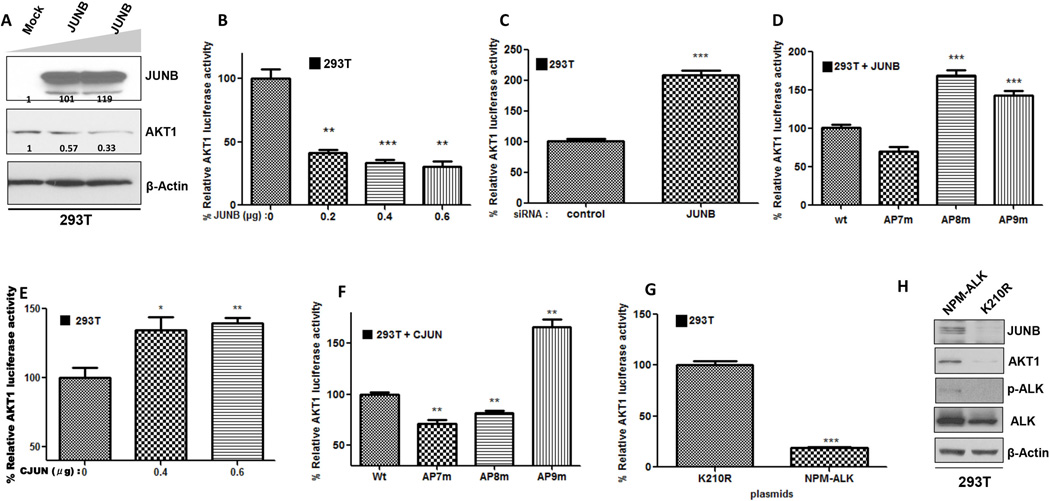Figure 3. JUNB-mediated transactivation of AKT1 is cell context-dependent.
A. Forced expression of JUNB resulted in a concentration-dependent decrease of total AKT1 protein levels in HEK293T cells. B. Forced expression of JUNB repressed AKT1 promoter activity in HEK293T cells. C. AKT1 promoter activity was restored following JUNB knockdown. D. HEK293T cells were co-transfected with JUNB expression plasmid and the AKT1-Luc constructs harboring either wild-type (Wt) or mutated AP-1 sites 7 (AP7m), 8 (AP8m), or 9 (AP9m). Mutation at site 8 or 9 led to abrogation of the JUNB-dependent AKT1 promoter repression, while AP7 mutation did not result in de-repression of promoter activity. E. cJUN transactivates AKT1 promoter in HEK293T cells. F. Compared with wild-type AP-1, mutation of AP-1 sites 7 or 8 results in decreased AKT1 promoter activity in co-transfection assays with cJUN expression plasmid, whereas mutation at AP-1 site 9 didn’t change the cJUN-induced activation status of the AKT1 promoter. G. NPM-ALK can partly induce JUNB-mediated AKT1 trans-repression. Ectopic expression of NPM-ALK plasmid but not the kinase-dead (K210R) NPM-ALK vector resulted in significant repression of AKT1 promoter. H. Western blot analysis following transfection of NPM-ALK and the kinase-dead (K210R) expression plasmids showed that the JUNB protein levels were increased following NPM-ALK ectopic expression in HEK293T cells. Also, there was concomitant AKT1 protein upregulation. pALK was used as a positive control for the kinase activity of NPM-ALK.
*, p<0,05, **, p<0,01, ***, p<0,001 (Student’s t-test).

